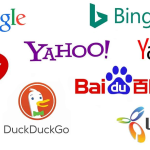Over the past century, technological advancements have reshaped the business landscape, often rendering entire industries obsolete while creating new opportunities. With the convergence of cloud computing and the rapid development of artificial intelligence (AI), I believe we’re in the next industrial revolution. It won’t be long before your smartphone isn’t simply a gateway to information; your personal digital assistant will proactively maximize your health and productivity.
It’s worth looking at some major industries that have been radically transformed and the massive corporations that died with them. This article explores key technological shifts, their impacts across various sectors, and the new frontiers they’ve opened up.
Photography – Digital Cameras

The advent of digital photography in the late 20th century revolutionized image capture and sharing. Traditional film companies struggled to adapt:
- Kodak: Filed for bankruptcy in 2012, unable to pivot quickly enough to digital.
- Polaroid: Declared bankruptcy in 2001 and again in 2008.
These giants were replaced by digital camera makers and, later, smartphone manufacturers as primary tools for photography. However, the democratization of photography through smartphones has led to an explosion in visual content creation, driving demand for content creators, developers for new startups and existing companies to further innovation, as well as digital asset management platforms and specialists.
Music – Digital Audio and Streaming

I was actually on the list of Napster users in the Metallica lawsuit. It enraged me because I had purchased all their music and even attended their concerts. It was simply easier to download the music than to digitize it myself. No doubt that the digitization of music and the rise of streaming services has upended the traditional recording industry:
- Tower Records: Closed all US stores in 2006, unable to compete with digital downloads.
- HMV: Entered administration multiple times, closing most international operations.
Streaming platforms like Spotify and Apple Music now dominate music distribution. But this shift has created opportunities for playlist curators, audio engineers specializing in digital mastering, data analysts for music trends and listener behavior, and ongoing innovative development by software developers.
Video Rental – Streaming Services

The rise of on-demand streaming decimated the video rental market:
- Blockbuster: Filed for bankruptcy in 2010, outpaced by Netflix’s DVD-by-mail and streaming model.
- Hollywood Video: Liquidated in 2010, unable to compete with digital alternatives.
Streaming giants like Netflix, Amazon Prime, and Disney+ now lead home entertainment. This transformation has led to a boom in content creation for streaming platforms, UI/UX designers for streaming services, and data scientists for content recommendation algorithms. It’s also democratized storytelling, with hundreds of new releases every week instead of a few blockbusters.
Printing and Publishing – Digital Media

Digital publishing and e-readers have transformed how we consume written content:
- Borders: Liquidated in 2011, slow to adapt to e-commerce and e-books.
- Many local newspapers: Hundreds have shuttered due to declining print readership and ad revenue.
Online news sites, blogs, and e-book platforms have largely replaced traditional print media but new opportunities have emerged for digital content creators, bloggers, SEO specialists, developers, E-book designers, content management systems (CMS), graphic designers and more.
Telegraphy – Telephone and Internet

The rise of telephone networks and, later, the internet made telegraph services obsolete:
- Western Union: Ceased telegram services in 2006, shifting to financial services.
- Multiple national telegraph services worldwide closed operations by the early 2000s.
This transition paved the way for telecommunications engineers, network security specialists, customer support representatives, and VoIP developers and platforms.
Internet and Telecommunications

The Internet has been a transformative force across numerous industries:
Travel Agencies:
- Thomas Cook: Collapsed in 2019, unable to compete with online booking platforms.
Classifieds:
- Print classified ad revenue plummeted as online platforms like Craigslist and eBay gained popularity.
Yet, the internet revolution has created countless new roles, including:
- Web developers and designers
- Digital marketers and analytics experts
- Cybersecurity experts
- Cloud computing specialists
Retail and E-commerce

The growth of online shopping has reshaped retail:
- Circuit City: Bankrupt in 2008, struggled against online competitors.
- Toys “R” Us: Filed for bankruptcy in 2017, though attempting a comeback.
- Sears: Filed for bankruptcy in 2018, failed to adapt to changing consumer habits.
- JCPenney: Filed for bankruptcy in 2020, struggled with e-commerce transition.
Amazon and other e-commerce platforms have captured significant market share from traditional retailers. This shift has led to new positions such as E-commerce platform managers, supply chain optimization specialists, customer experience designers, and conversion optimization experts.
The Resilience of Traditional Skills
While technological advancements have disrupted many industries, it’s important to note that many traditional skills and professions have adapted and remain in demand:
- Videography: Despite the proliferation of high-quality smartphone cameras, professional videographers are still sought after for their expertise in composition, lighting, and storytelling.
- Journalism: While print media has declined, the demand for high-quality reporting and content creation has shifted to digital platforms.
- Customer Service: Even as AI chatbots become more sophisticated, human representatives are still valued for complex problem-solving and empathy in customer interactions.
- Skilled Trades: Professions like plumbing, electrical work, and carpentry remain essential and resistant to automation.
- Teaching: While online learning has grown, the need for skilled educators to guide and mentor students persists.
The key for professionals in these fields has been to adapt their skills to new technologies and changing market demands.
The Promise of AI: New Frontiers and Opportunities
As we look to the future, artificial intelligence presents challenges and exciting new possibilities. While some jobs may be automated, AI is also poised to create new roles and enhance human capabilities in various fields:
- AI Ethics and Governance Specialists: As AI systems become more prevalent, there will be a growing need for professionals who can ensure these systems are developed and deployed ethically and responsibly.
- AI Trainers and Data Curators: As AI systems require large amounts of high-quality data to function effectively, there will be a demand for experts who can prepare and maintain these datasets.
- Augmented Reality Experience Designers: As AR technology advances, particularly with the integration of AI, creative professionals who can design immersive and interactive experiences will be needed.
- Human-AI Collaboration Managers: These professionals will specialize in optimizing workflows that combine human creativity and decision-making with AI capabilities.
- Personalized Healthcare Analysts: AI-driven personalized medicine will require specialists who can interpret complex health data and work alongside medical professionals to develop tailored treatment plans.
- Quantum Computing Researchers: As quantum computing and AI converge, experts who can develop and apply these cutting-edge technologies will be needed.
- Robotics Integration Specialists: As AI-powered robotics become more sophisticated, professionals integrating these systems into various industries will be in high demand.
- AI-Assisted Creative Professionals: Writers, artists, and musicians who can effectively leverage AI tools to enhance their creative output will find new opportunities.
- Cognitive Computing Architects: These specialists will design and implement AI systems that can process and analyze information in ways similar to the human brain.
Embracing Change and Continuous Learning
The history of technological advancement shows us that while specific jobs and industries may decline, new opportunities invariably arise. Adaptability and a commitment to lifelong learning are the keys to thriving in this ever-changing landscape.
For Individuals
- Cultivate a growth mindset and be open to learning new skills
- Stay informed about technological trends in your industry
- Consider how your current skills can be applied to emerging fields
- Embrace online learning platforms and professional development opportunities
For Businesses
- Foster a culture of innovation and continuous improvement
- Invest in employee training and reskilling programs
- Look for ways to integrate new technologies to enhance, rather than replace, human capabilities
- Be prepared to pivot business models in response to technological shifts
For Educators and Policymakers
- Develop curricula that emphasize adaptability and critical thinking
- Promote STEM education while also recognizing the importance of creativity and social skills
- Create policies that support workers in transitioning to new roles and industries
- Encourage partnerships between industry and education to ensure skills alignment
While technological advancements have disrupted many traditional industries and job roles, they have also created unprecedented opportunities for innovation, creativity, and problem-solving. As we stand on the brink of the AI revolution, it’s crucial to approach these changes with a balanced perspective.
By embracing new technologies, continuously adapting our skills, and focusing on uniquely human capabilities like creativity, empathy, and complex problem-solving, we can ensure that technological progress enhances rather than diminishes human potential. The future of work will likely be characterized by human-AI collaboration, where technology amplifies our abilities and frees us to focus on higher-value tasks.
As history has shown, industries and individuals that embrace change and see technological advancements as opportunities rather than threats are the ones that thrive. The coming years promise to be an exciting time of transformation and possibility for those ready to seize the emerging opportunities.
©2024 DK New Media, LLC, All rights reserved.
Originally Published on Martech Zone: 7 Industries That Have Been Radically Transformed by Technology and the Internet














